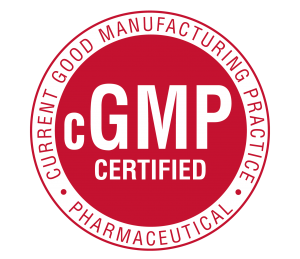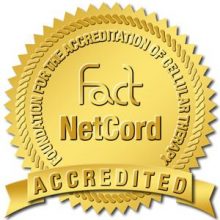Certification serves as tangible evidence of an organisation’s dedication to maintaining high-quality processing procedures. Organisations often seek certifications and accreditation from entities to establish trust with consumers and enhance the value of their products or services. These certifications offer consumers a set of standards by which they can assess an organisation’s credibility and ascertain whether minimum quality standards are upheld.

AABB is mainly to assess whether the existing system in the facility is compliance with the provision of quality products and services.
A laboratory with AABB accreditation assures that the technical and administrative performance of the facility meets or exceeds the quality standards set by AABB. The company is able to effectively provide quality product services such as the best safety standards for collection, distribution, processing, testing, storage and management of products.
AABB released the 31st edition of “Standards for Blood Bank and Blood Transfusion Services”, which came into effect on April 1, 2018. Based on the latest ideas on the quality and best practices of blood banks and transfusion medicine, the standard stipulates that facilities providing blood banks and blood transfusion services must be approved by AABB. These standards are mandatory requirements(1).

The federal government established a standard for laboratories and medical equipments, where it has to be cGMP certified. cGMP favors systems with proper design, close monitoring techniques, and also having complete control over all manufacturing processes within a facility. Adherence to cGMP regulations assures the identity, strength, quality and purity of drug products produced are maintained. Establishing strong quality management systems includes obtaining appropriate quality raw materials, establishing robust operating procedures, detecting and investigating product quality deviations, and maintaining reliable laboratory tests. This formal system of controls at a pharmaceutical company, if adequately put into practice, helps in preventing instances of contamination, mix-ups, deviations, failures and errors.
The law in certain countries established regulations which require private stem cell banks to achieve the similar standard as the public stem cell banks. However in most countries, the requirements and standards established by the federal government for private stem cell banks are not as stringent as the public stem cell banks. Thus, private stem cell banks could only attain accreditations and certifications on a voluntary basis. For example, the The Joint Accreditation Committee ISCT-Europe & EBMT (JACIE) accreditation in Europe and the GMP standards established by the The Food and Drug Administration (FDA) in the United States of America.
The FDA applies GMP standards to production of vast pharmaceutical products and medical equipments. The new FDA BLA (Biologics License Application) requires public cord blood banks to run operations of their laboratories similar to that of drug manufacturers and comply with the GMP standards. cGMP requirements were established to be flexible in order to allow manufacturers to decide individually how to best implement the necessary controls by using design, processing, methods, and testing procedures that are scientifically sound. The flexibility in these regulations allows companies to use modern technologies and take innovative approaches to achieve higher quality through continual improvement. The alphabet“c”in cGMP stands for ‘current’. Just as the name suggests, companies are required to use technologies and systems that are up-to-date in order to comply with the regulations. In addition, cells must be tested in accordance with the International Society for Cellular Therapy and the best practices in the industry, whereby the cells 1) has to be plastic adherent when kept under standard culture conditions 2) express proper positive and negative MSC markers and 3) retain a multipotent phenotype with the ability to differentiate into adipocytes, osteoblasts and chondrocytes, under the standard differentiation conditions.

FACT establishes high-quality medical and laboratory practice standards, for cellular therapy. FACT is a non-profit company co-founded by the International Society for Cell Therapy (ISCT) and the American Society for Blood and Bone Marrow Transplantation (ASBMT). It’s purpose is to conduct voluntary inspection and identification in the field of cell therapy to achieve high-quality care, promote the quality of cell therapy and regenerative medicine treatment.
FACT standards emphasise the use of collected and processed cell therapy products. Such comprehensive standards or requirements cover the production and management of cells in various cell therapies. It is mainly a cell therapy plan to collect, process and manage cells. In addition to stem cells, the standard also applies to immune cell therapy, which uses dendritic cells, natural killer cells, T cells and B cells, including chimeric antigen receptor T cells (CAR-T cells) and therapeutic vaccines(2).
- Standards Programs – AABB (May 7, 2020). Retrieved from: http://www.aabb.org/sa/standards/Pages/standards-programs.aspx
- Foundation for the Accreditation of Cellular Therapy (May 7, 2020). Retrieved from: http://www.factwebsite.org/Standards/